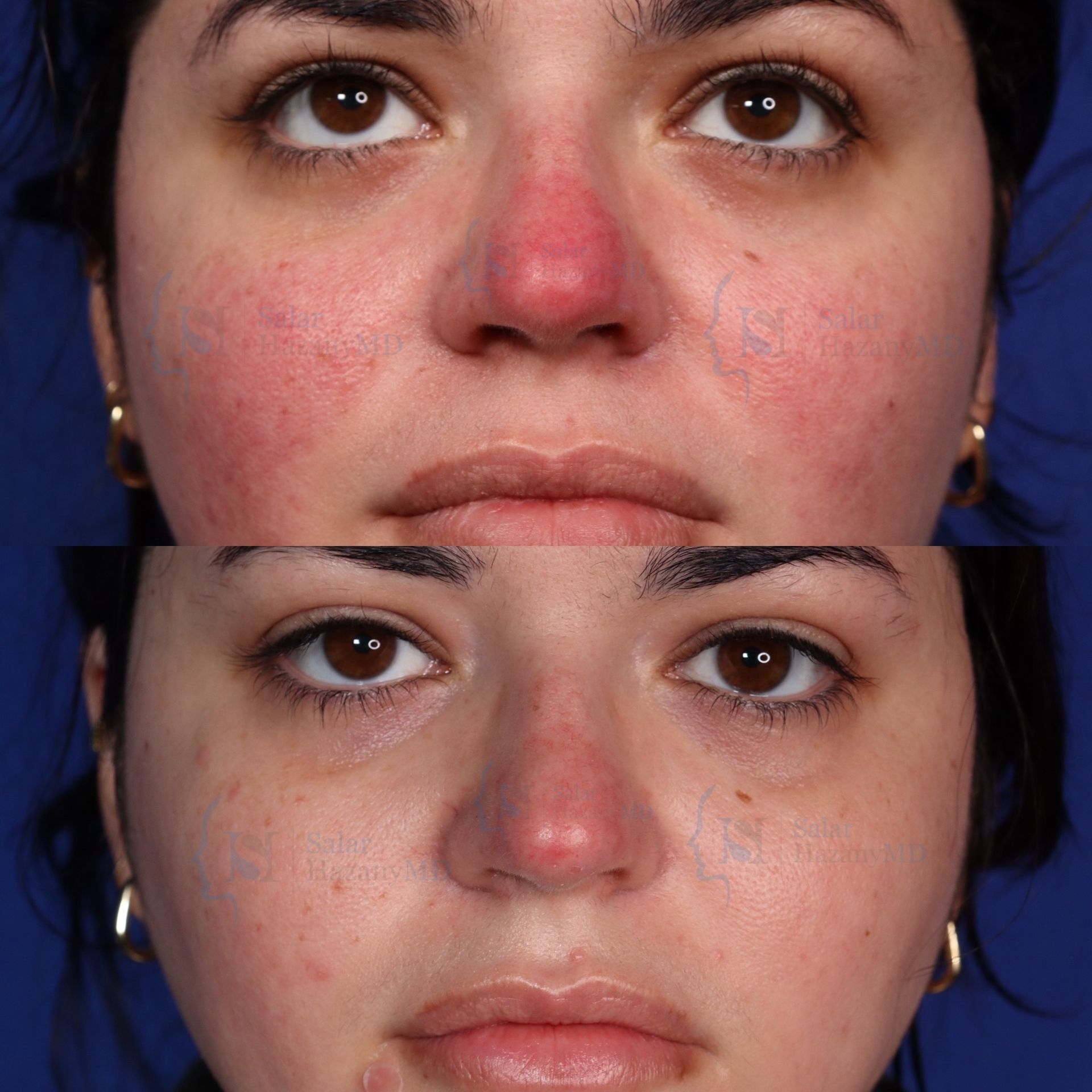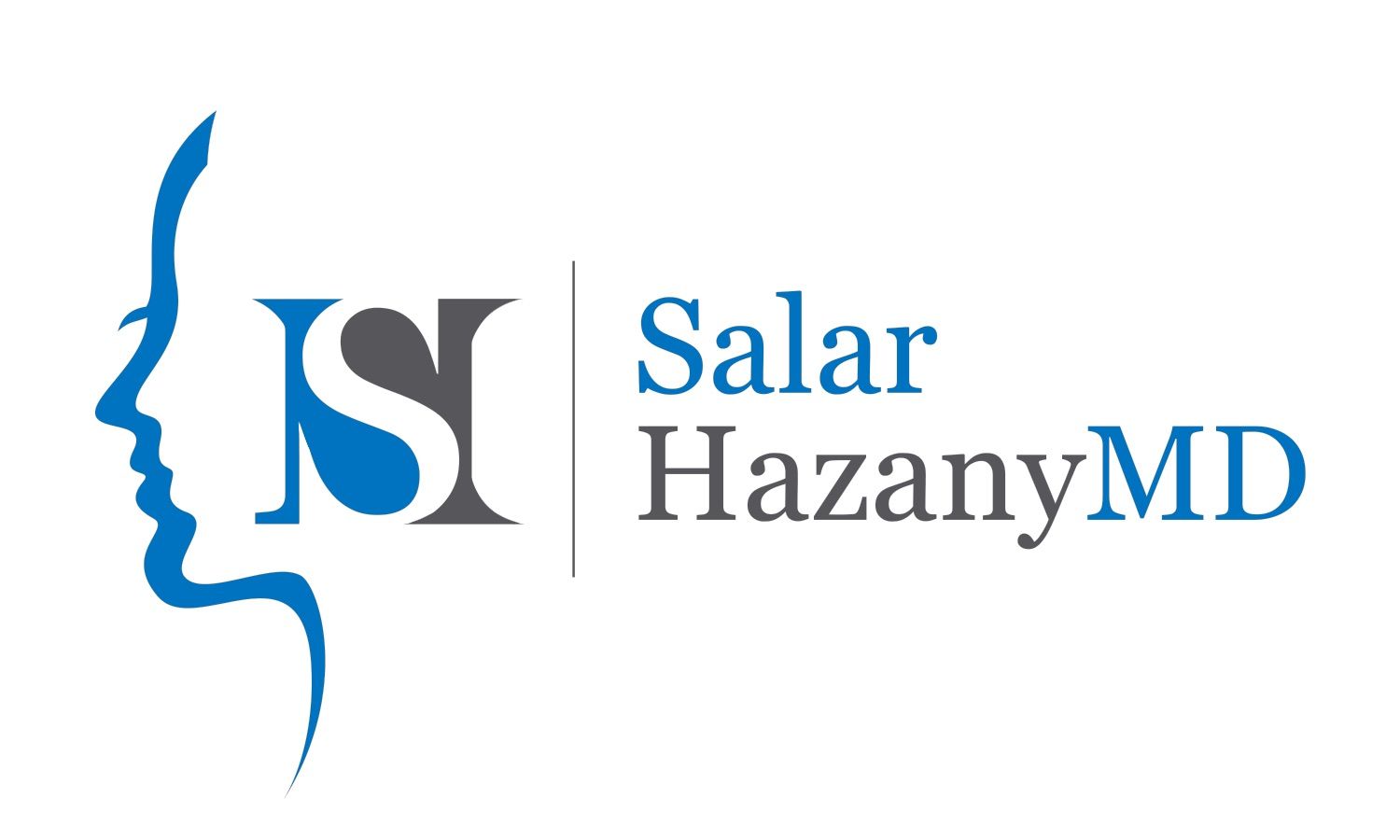Rosacea Treatment
Beverly Hills & Los Angeles
Expert Rosacea Treatment in Beverly Hills and Los Angeles

What is Rosacea?
Rosacea is an inflammatory skin condition that most commonly appears on the face. Because rosacea has similar symptoms to acne, people often confuse it with acne. Rosacea symptoms include redness, red bumps that may or may not be pus-filled, visible blood vessels, and vision problems; in many cases, rosacea results in small spots that are red and pus-filled.
The National Rosacea Society (NRS) estimates that nearly 16 million Americans have some form of rosacea. While rosacea may affect anyone, it is most common in women, but symptoms are typically more severe for men.
What Causes Rosacea?
While experts are unsure of rosacea's exact cause, research indicates that a combination of hereditary and environmental factors causes rosacea. People with a family history of rosacea are more likely to develop rosacea themselves. Common environmental factors that might trigger rosacea symptoms include UV exposure, spicy food, hot drinks, smoking, alcohol consumption, extreme temperatures, exercise, various skincare products, and certain blood vessel dilation drugs.
Rosacea Treatment in LA
Dr. Hazany is an expert in rosacea treatment in Los Angeles. He uses a bespoke rosacea treatment approach in his Beverly Hills clinic that depends on the type, location, and severity of the symptoms. If symptoms are mild, treatment might include skin care products like a gentle skin cleanser, moisturizers, topical anti-inflammatories, and sunblock. Dr. Hazany can help you determine the best skin care product regimen to address mild rosacea symptoms. However, if symptoms are more severe and persistent, Dr. Hazany might use laser/light treatment or prescribe medications.
Dr. Hazany uses various light or laser treatments to address the redness and damaged blood vessels associated with rosacea; laser treatments are minimally invasive and have minimal downtime. Prescription medication for rosacea might include topical ointments, oral antibiotics, or, in more severe cases, an oral acne drug (drugs such as isotretinoin, while typically used for severe acne, can help alleviate acne-like rosacea lesions).

